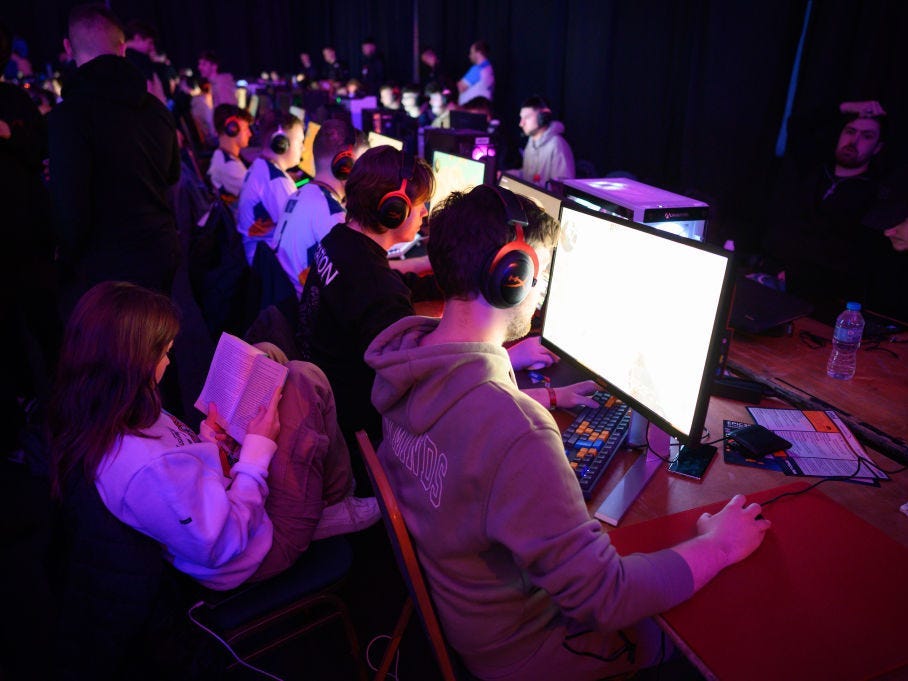
« Counter Strike 2 » brought in nearly $1 billion from loot boxes. Regulators have suggested loot boxes are too close to gambling.
‘Counter-Strike’ raked in nearly $1 billion in 2023 from randomized loot boxes
Read in app
Esport competitors take part in a gaming tournament at the Epic.Lan 38 event in Kettering, England.
Getty Images
« Counter-Strike » raked in nearly $1 billion last year from loot boxes — cases that players can purchase containing random items of varying value — a controversial feature some regulators liken to gambling.
subscribers.
Become an Insider
and start reading now.
Have an account? .
Gamers are known to shell out large sums of money for in-game items, especially in « Counter-Strike, » where a virtual weapon skin sold for over $500,000 last year. CS2 Case Tracker monitors « Counter-Strike » revenue and reported that the game brought in $980 million in loot box « keys » alone.
The massive figure does not even count additional purchases made through the Steam or collection packs sold through the « Counter-Strike » store, which include the keys, according to The Daily Dot.
Related stories
While loot boxes are lucrative for game studios, gamers and regulators have long debated whether they promote underage gambling.
While their exact mechanics vary from game to game, loot boxes generally work the same: you buy a loot box using in-game currency or real money, and it in turn gives you a randomized reward. These rewards are typically cosmetic, giving the player a new item of clothing or a new look for their gun but not providing any actual advantage in the game.
In 2020, the UK Parliament published a gambling report that found there were around 55,000 people with a gambling problem between ages 11 and 15 in the UK. The report recommended that « loot boxes » in video games be reclassified as gambling under the country’s 2005 Gambling Act.
One study from researchers at The University of York found that 71% of the top games on Steam from 2010 to 2019 contained purchasable loot boxes.
Still, the UK’s Gambling Commission has said it can not act on loot boxes because the Gambling Act does not cover the practice. The UK’s Department for Culture, Media and Sport is still actively examining loot boxes and published a list of 10 rules that developers should follow to « enhance player protection » in July 2023.
Some recommendations include restricting anyone under 18 from purchasing loot boxes and disclosing the presence of loot boxes in a game before buying and downloading the game.
In April 2020, the Entertainment Software Ratings Board, which oversees video game ratings, added a rating section to note when games include randomized in-game purchases such as « loot boxes, gacha games, item or card packs, prize wheels, treasure chests, and more. »

